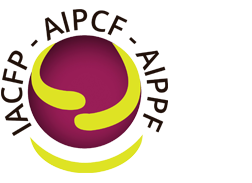The soma is individual, the psyche is of group essence
Gérard Decherf (Sceaux, France) and André Ruffiot (Grenoble, France)
Psychoanalytic family therapy, theorized, experienced and introduced in France since 1969, is an extension of psychoanalysis, based on the models of individual and group treatment. It is therefore a therapeutic modality that resumes the great Freudian clinical foundations (rules of abstinence, neutrality, primordial place of sleep…) that adds framing elements that can accommodate the family group (rule of presence of two generations).
Its dissemination and teaching in the 70s reflect the findings made at a clinical level regarding the family group nature of psychological, behavioral, psychosomatic suffering… often related to problems not elaborated on a transgenerational level. We needed to differentiate ourselves from systemic and later constructivist and cognitive-behavioral practices, which in our opinion do not take sufficient account of unconscious functioning. The TFP group device effectively gives access to specific psychic processes and structuring of the family unconscious, especially those linked to psychic transmission that are difficult to mobilize by other techniques.
The practical and conceptual development of TFP thus leads to foreseeing a wide range of these specific “group” therapeutic indications, based on a central theoretical hypothesis: the existence of a family psychic apparatus, the foundation of the matrix of all psychic individuality ( the “we” precedes the “I”; the latter is considered to be rooted in the corporeal). The treatment of “difficult” clinical cases (psychosis, anorexia, addictions, borderline pathologies, perversions, abuse…) would in this sense involve a necessary approach to the family group as a whole.
In the sessions, patients are invited to express, in free association, everything that comes to their spirit, in a double perspective of connection and representation of the primitive fantasies that organize the family group. The framework proposed in this way allows the implementation of a work of symbolization that is essential for the evolution of family suffering; work made possible by a transference support on the neogroup (family plus therapists).
In this way, the profound insufficiencies/dysfunctions of the family psyche (continent deficiencies, confused parenting) are updated again in the transference, based on the interrelations in the therapeutic group. This collective psychic process thus authorizes, through the transitional space, the autonomization of psychic individualities and the resumption of a more functional mythopoietic activity, necessary for the psychic balance of every family.
In this way, the profound insufficiencies/dysfunctions of the family psyche (continent deficiencies, confused parenting) are updated again in the transference, based on the interrelations in the therapeutic group. This collective psychic process thus authorizes, through the transitional space, the autonomization of psychic individualities and the resumption of a more functional mythopoietic activity, necessary for the psychic balance of every family.
Bibliography
- G. Decherf, L. Knera, E. Darchis (2003) Souffrances dans la famille, Paris, In Press.
- A. Eiguer (1983) Un divan pour la famille , Paris, Le centurion.
- A. Eiguer, E. Granjon, A. Loncan (2006) La part des ancêtres, Paris, Dunod.
- F. André (1986) L’enfant insuffisamment bon , PUL, Lyon.
- E. Granjon (2006) Le néo groupe, Le Divan Familial, Paris, In press.
- C. Joubert, F. Fustier (1999) A la recherche de la mémoire familiale, Le Divan Familial, Paris, In Press.
- R. Kaës et ali. (1993) Transmission de la vie psychique entre générations, Paris, Dunod.
- A. Ruffiot et ali. (1981) La thérapie familiale psychanalytique , Paris, Dunod.
- S. Tisseron et ali. (1995) Le psychisme à l’épreuve de générations, clinique du fantôme. Paris, Dunod.
